Premium Only Content
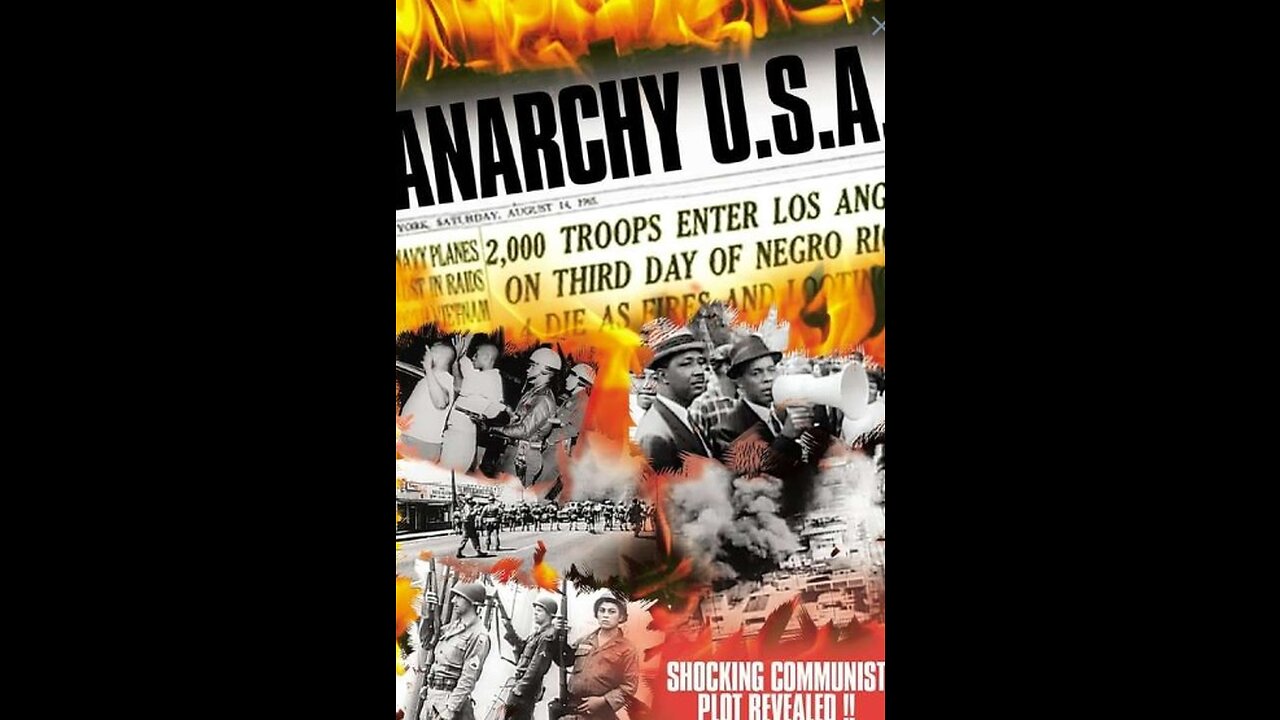
Anarchy U.S.A. 1964-1984-2026 Tidbits of Suppressed Information 4 New World Order
Anarchy USA is a 1966 film by G. Edward Griffin (author, film maker, and conspiracy theorist ?) claiming that civil rights movements during the 1960s, in the U.S. and abroad, where communist revolutionary attempts to infiltrate and over-through capitalist democracies. Age restricted for disturbing content and gruesome depictions of dismembered bodies. You have been warned.
A remarkable examination of the forces behind the Civil Rights Movement in 1960’s America. Drawing parallels between successful communist insurrections in China, Cuba, and Algeria; “Anarchy USA” attempts to convince its audience that revolutionary communism was using the noble fight for civil rights to foment racial tension and overthrow the US government. A treasure trove of rare archival footage from America’s most traumatic period of social upheaval. Featuring Ahmed Ben Bally, Julia Brown, Charles De Gaulle, Martin Luther King.
The Revolutionary Communist Party, USA (RCP) is radical-left political party in the United States that seeks to overthrow the government and implement a socialist system of government. With a basis in the 1960s liberal activist movements, the RCP continues to spread its message of communist ideas and replacing the government system in the United States. RCP has its origins in the 1960s with the formation of the Bay Area Action Committee (BAAC) and Bay Area Revolutionary Union. Both were unofficially led by future RCP chairman Bob Avakian. In 1967, a pamphlet was distributed at a meeting of the Bay Area Action Committee containing a resolution by Avakian calling for the group to purchase guns for black militants in the San Francisco area. In July 1968, Avakian was arrested at a Black Panther Party demonstration at the Alameda County, California courthouse for burning the American flag, disturbing the peace, and malicious mischief. He was convicted and sentenced to 30 days in jail.
Another earlier forerunner of RCP is a Students for a Democratic Society’s faction that formed as the Revolutionary Youth Movement. By 1969, the Revolutionary Youth Movement split into two groups after Mark Rudd defeated Bob Avakian as secretary general. Avakian and followers formed a group “Revolutionary Youth Movement II” to focus more on Maoist communism while Mark Rudd’s faction later became the Weather Underground.
By 1972, Avakian continued to be active with the Bay Area Revolutionary Union when he and members of the group toured China. While on the tour, Avakian met with Chairman of the Chinese Communist Party Mao Zedong. In 1975, Avakian founded and became chairman of the Revolutionary Communist Party, USA.
In 1979, Avakian and 500 Maoist protestors demonstrated Deng Xiaoping’s meeting near the White House with President Jimmy Carter and President Richard Nixon by attacking police with fishing hooks. Avakian and 78 protesters were arrested and charged with assaulting a police officer while Avakian fled the country for France after his arrest. All charges against Avakian from his arrest were dropped in 1982 after other members of the protest pled guilty. Since his arrest and move to France, Avakian has continued to live in a self-imposed exile.
In their everyday life workers pour their sweat into production and, in capitalist society, experience the life-killing exploitation on which the system is built. They take part in struggles, together with fellow workers and others, against the abuses and outrages of the capitalist system. Each worker perceives a part of the reality of capitalism, but none by himself can grasp the overall picture, fully discover the source of his oppression or grasp the laws of nature and society that determine the development of the class struggle.
In order to become conscious of itself as a class, and to know and change the world in accordance with its revolutionary interests, the working class must have the leadership of its own political Party, a Party that takes part in and leads the battles of the working class and its allies against the capitalist rulers and consistently points the way forward toward the goal of overthrowing the rule of capital, building socialism and advancing to communism. In every country where the working class has seized and held power and continued on the socialist road, it has had the leadership of such a Party.
The working class in each country needs only one Party. The capitalists usually have more than one party, because of their need to compete with each other and to deceive the masses of people. Different blocs and sectors of capital seek to advance their interests by competing both through and within these parties. Each party tries to cover up the capitalist dictatorship with talk about “democracy for all the people.”
The working class has no interest in competition in its ranks–it is the rule of capital that forces the workers to compete for jobs and for survival. The working class has no need for masks–it openly proclaims its intention to overthrow and dictate to the exploiting minority.
The working class needs a single Party to unite it as a mighty fist, to build its understanding of the historical mission of ending all class society. The working class needs a Party to draw up a battle plan and lead the overall battle against the enemy. One Party, representing the interests of one class, and through these interests, the great majority of humanity.
The Revolutionary Communist Party is the Party of the working class in the U.S. It is a part of the working class, the advanced detachment of the working class, its vanguard in the struggle against the bourgeoisie. It has no interests apart from the interests of the working class. It is part of the life and struggles of the masses of people, and constantly works to deepen its ties with the class as a whole, for the separation of the Party from the class robs the Party of its life blood, its very reason for existence. But at the same time the Party brings to the class an understanding of the laws of struggle and enables it to consciously change the world and make revolution.
GENERAL LINE OF THE REVOLUTIONARY COMMUNIST PARTY
The Revolutionary Communist Party is the political Party of the working class, the vanguard of the working class of the USA, and stands with the working class world-wide.
The Revolutionary Communist Party takes Marxism-Leninism, Mao Tsetung Thought as the theoretical basis guiding its thinking.
The basic programme of the Revolutionary Communist Party is the complete overthrow of the bourgeoisie, the establishment of the dictatorship of the proletariat in place of the dictatorship of the bourgeoisie and the triumph of socialism over capitalism. The ultimate aim of the Party is the realization of communism.
In order to accomplish this historical mission the working class, led by its Party, must establish under its leadership the broadest united front, uniting all who can be united against the main enemy, and must carry the struggle through to the complete elimination of the bourgeoisie and all exploiting classes.
MEMBERSHIP
Article I
The Revolutionary Communist Party seeks to recruit the most dedicated members of the working class and other strata. Any worker or any other person involved in the revolutionary struggle who accepts the Constitution and line of the Party, is committed to working actively in a Party organization, to carrying out the Party’s decisions and to observing Party discipline and paying Party membership dues, may become a member of the Revolutionary Communist Party of the USA.
Article 2
Applicants for Party membership must go through the procedure for admission individually. An applicant must apply for membership, be recommended by two Party members, and discuss his application with a delegation of the Party branch. These discussions must include an evaluation of the applicant’s strengths and weaknesses in relation to the requirements for Party members, based upon the delegation’s extensive knowledge of the applicant’s practice. Application is subject to acceptance by the general membership meeting of the Party branch and approval by the next higher Party committee.
Article 3
Members of the Revolutionary Communist Party must:
1. Put the interests of the working class and of the revolution above everything else;
2. Be active among the masses and involved in their struggles;
3. Conscientiously study Marxism-Leninism, Mao Tsetung Thought and thoroughly oppose revisionism and all forms of opportunism;
4. Systematically apply the mass line in all their work;
5. Be bold in making criticism and self-criticism;
6. Uphold proletarian morality.
Article 4
When Party members violate Party discipline, the Party organization at the level concerned shall, within its functions and powers and on the merits of each case, take appropriate disciplinary measures–warning, serious warning, removal from posts in the Party, placing on probation within the Party, or expulsion from the Party. Such decisions must be reported to the next higher body and the general right of members to appeal also applies in these cases.
The period for which a Party member is placed on probation shall not exceed one year. During this period, he has no right to vote or elect or be elected.
A Party member whose revolutionary will has degenerated and who, after serious struggle to rekindle his revolutionary spirit, does not change, should be persuaded to withdraw from the Party.
When, after a period of discussion and struggle, a Party member asks to withdraw from the Party, the Party unit concerned shall report the matter to the next higher Party committee, and after consultation, drop his membership.
Proven opportunists, enemy agents, degenerates and anti-working class elements must be cleared out of the Party and must not be readmitted.
ORGANIZATIONAL PRINCIPLES OF THE PARTY
Article 5
The organizational principle of the Party is democratic centralism. This principle combines centralized leadership and the greatest degree of discipline with the fullest discussion and struggle over policy within the Party and the selection and supervision of Party leaders by the Party membership.
The leading bodies of the Party at all levels shall be elected through democratic consultation between higher and lower levels in accordance with the requirements of leadership of the proletarian revolution–to work out ideas and to use cadre well. The Revolutionary Communist Party neither removes leadership lightly, nor fails to bring forward new leaders, especially from the ranks of the working class, who come to the fore in the revolutionary struggle.
The whole Party must observe Party discipline: the individual is subordinate to the Party, the minority is subordinate to the majority, the lower level is subordinate to the higher level, and the entire Party is subordinate to the Central Committee.
Standing bodies of the Party at all levels shall regularly report on their work to the congresses or general membership meetings of the bodies to which they are directly responsible. Leading bodies on all levels must constantly listen to the opinions of the masses, both inside and outside the Party, accept their supervision and encourage their criticism. Party members have the right to criticize leading bodies or members of the Party at all levels and make proposals to them.
If a Party member holds different views with regard to the decisions or directives of the Party body he serves on, or others above it, he may reserve his opinion while maintaining Party discipline, and has the right to bypass the immediate leadership and report directly to the higher levels, up to and including the Central Committee. It is absolutely impermissible to suppress criticism or to retaliate. It is essential to create a political situation in which there is both centralism and democracy, both unified line and broad initiative, both discipline and freedom, both unity of will and action and personal ease of mind and liveliness.
CENTRAL ORGANS
Article 6
The highest body of the Party is the National Party Congress, and when it is not in session, the Central Committee elected by it.
Article 7
The National Party Congress shall be held every 3 years. Under special circumstances it may be convened before its due date or postponed.
Article 8
The Central Committee elects its Chairman and other officers and standing bodies to whom it delegates all of its authority when it is not in session.
Article 9
The Central Committee, under the leadership of its Chairman and other officers and its standing committees, shall set up a number of compact bodies to carry through its work in the most correct and efficient way.
BASIC UNITS OF THE PARTY
Article 10
Party branches shall be set up as the basic units of the Party, along the lines of the organization of production and society, in order to be most rooted in the actual struggles of the working class and the masses.
Article 11
Party branches shall hold elections of their officers once a year.
Article 12
The main tasks of the Party branches are:
1. To give constant education to the Party members and supporters concerning the ideological and political line and lead them, together with the proletariat and broad masses, in fighting resolutely against the class enemy;
2. To maintain close ties with the masses, constantly listen to their opinions and demands and wage an active ideological struggle so as to keep Party life vigorous;
3. To propagate and carry out the policies of the Party, implement its decisions and fulfill every task assigned by the Party;
4. To lead the Party members and supporters in studying Marxism-Leninism, Mao Tsetung Thought conscientiously and thoroughly opposing revisionism and all forms of opportunism;
5. To take in new Party members, enforce Party discipline and constantly consolidate the Party organizations, getting rid of the stale and taking in the fresh, so as to constantly strengthen the proletarian character of the Party and its role as the vanguard of the working class.
-
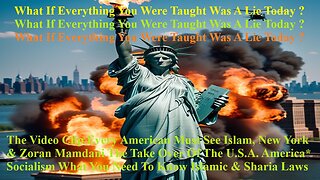 40:55
40:55
What If Everything You Were Taught Was A Lie?
4 days agoVideo Clip Every American Must See Islam, New York & Zoran Mamdani The Take Over Of America
1.51K3 -
 LIVE
LIVE
Inverted World Live
4 hours agoThe Technocratic Web of Control w/ 7SEES | Ep. 142
2,505 watching -
 2:43:56
2:43:56
TimcastIRL
3 hours agoDemocrats COLLUDED With Epstein To HURT Trump, Emails BACKFIRE
182K55 -

Dr Disrespect
12 hours ago🔴LIVE - DR DISRESPECT - ARC RAIDERS - STELLA MONTIS QUESTS
216K14 -
 5:20:41
5:20:41
SpartakusLIVE
6 hours agoSolos on WZ to Start then ARC?! || Friends: UNBANNED
22.8K -
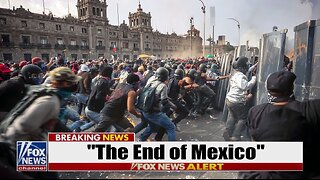 12:58
12:58
Cash Jordan
6 hours agoMexican MOB OVERTHROWS Capital... as "Socialist President" FLOODS AMERICA with CARTELS
3.8K3 -
 23:13
23:13
Jasmin Laine
7 hours agoPBO Breaks His Silence—“This Is Soviet Stuff”… and the Panel EXPLODES
3.21K12 -
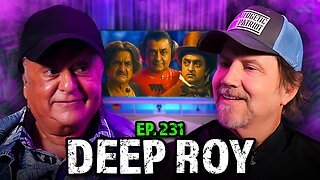
Jamie Kennedy
20 hours agoCatching Up With Deep Roy: JKX Stories, Star Wars Secrets, and Total Chaos | Ep 231 HTBITY
3.35K1 -
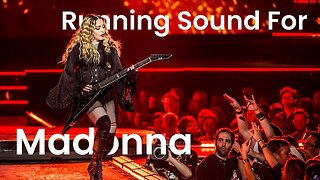 1:28:42
1:28:42
ThisIsDeLaCruz
2 hours agoThe Secrets Behind Madonna’s Legendary Live Sound
4.84K6 -
 1:22:15
1:22:15
Glenn Greenwald
6 hours agoTrump and JD Vance Weigh in on the MAGA Civil War Over Tucker; Zelensky's Top Associates Embroiled in $100 Million Corruption Scandal; FBI's Ongoing Concealment About Trump Shooter | SYSTEM UPDATE #548
108K106